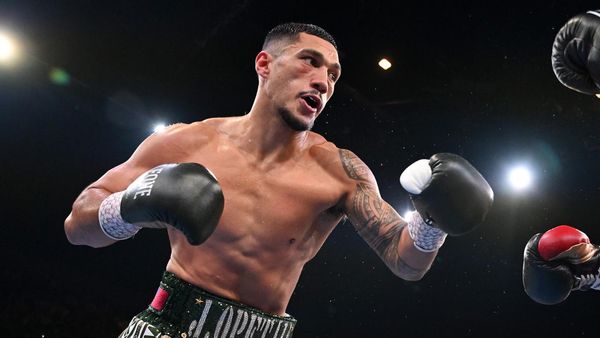
The South African president has started a two-day state visit to the UK, the first since King Charles took the throne, with the Conservative government eager to focus on trade rather than challenge South Africa’s refusal to impose sanctions on Russia over the invasion of Ukraine.
Cyril Ramaphosa’s trip has been much delayed due to Covid and only by chance became the first state visit of the king’s reign.
South Africa, along with Turkey, India and China, has been one of the big powers that have refused to use sanctions against Russia, while the youth wing of Ramaphosa’s African National Congress (ANC) endorsed the sham referendums held in occupied Ukraine before the Kremlin’s illegal annexation of four regions.
Rishi Sunak, the Conservative prime minister, is due to hold talks with the South African leader in Downing Street on Wednesday, but in advance of the talks focused on how the two countries could join forces to “turbocharge infrastructure investment and economic growth together”.
The UK is the largest state contributor to the $8.5bn (£7.1bn) pledged by western partners to help South Africa transition away from its dependence on coal in a plan presented by Ramaphosa. South Africa would like the loans turned into grants.
The opening day of the visit is more focused on pageantry and the hospitality of the royal family at a state banquet, where the king will be joined by the Prince and Princess of Wales, who are also taking part in a state visit for the first time in their new roles.
The prince and princess officially greeted the president, meeting him at the Corinthia London hotel on Tuesday and then travelling with him to a ceremony at Horse Guards Parade.
Ramaphosa has also been given the chance to address both houses of parliament.
His wife, Dr Tshepo Motsepe, has not joined him due to eye surgery, but the foreign minister, Dr Naledi Pandor, did travel with the entourage, meeting the British foreign secretary, James Cleverly. Pandor has accused some European countries of “patronising bullying” in trying to force South Africa to choose between the west and Russia over Ukraine.
Ramaphosa arrives in the UK in need of a boost at home and abroad. Since ousting his predecessor, Jacob Zuma, as the head of the ruling ANC amid a raft of corruption scandals five years ago and then winning a general election, the 70-year-old has seen his authority, morally and politically, weakened.
Unemployment is estimated at 35% and violent crime remains endemic, while Ramaphosa has struggled to purge the ANC of graft and push through much needed changes that may bolster a flagging economy.
The president was forced to cut short his last visit to London – for the state funeral of the queen at Westminster Abbey in September – to deal with an electricity generation crisis at home. Rolling nationwide power cuts of up to 10 hours a day are crippling businesses and undermining an already faltering recovery from the Covid pandemic. Last week South Africa’s massively indebted public power company announced it had run out of money to pay for diesel fuel and so would impose a programme of outages for the foreseeable future.

Plans for a transition to renewable energy, on the agenda in London, have been stymied by resistance from figures within the ANC who are sceptical about such power sources and concerned the party may lose vital support among unions or businessmen connected to the coalmining industry.
Ramaphosa’s state visit comes more than a decade after the last by a South African leader, when Jacob Zuma visited the UK in 2010.
Zuma, a populist still facing multiple corruption charges, was vilified in the British media, leading to accusations from South Africans of entrenched racism. Sensitivities remain. South African officials have said they object to being lectured by western states, especially over their failure to condemn the Russian invasion of Ukraine.
“There is a real danger for Ramaphosa that [the visit] will be viewed as too deferential to a colonial power. South Africa very much needs to feel that it is being listened to as an equal partner, not simply coming to kiss the ring of the new king,” said Chris Vandome, a senior research fellow at the Chatham House thinktank in London.
“The British quite often get the narrative very wrong. They talk about a great historic friendship but the historical relationship is often viewed very differently in South Africa.”
He added: “South African reasons for neutrality on Ukraine are complicated: narratives of Soviet support for liberation are projected on to a lattice of personal relationships between some South African and Russian political and business leaders. More importantly, South Africa felt let down by the faltering response to calls for assistance from the west during Covid-19, including on vaccine distribution and manufacture at the height of the pandemic.”
Ramaphosa, a former labour activist turned tycoon, faces a tough few weeks on the domestic front, with a parliamentary inquiry set to report on allegations that he is personally guilty of abusing his powers to cover up a theft of millions of dollars reportedly hidden at his game ranch. Though he is likely to escape impeachment, the charges of corruption have set back his effort to root out corruption in government. In mid-December, Ramaphosa will stand for re-election as party leader, the likely candidate for general elections next year.
Analysts expect him to win both contests, but largely because there are few other figures who can build a successful coalition of different interest groups. At the party level, the ANC expects to be punished by voters for its failure to tackle South Africa’s deep problems and its own.
• This article was amended on 25 November 2022 to correct the spelling of Dr Naledi Pandor’s last name.







